Across the last handful of decades, marijuana’s perception has changed from once being an illegal substance that could land you behind bars to being legalized for medicinal and recreational purposes across the United States. In the last decade specifically, we have seen some states approve of marijuana use in recreational and medical settings while also adding a special tax to it. Think of this in the same way that some states tax alcohol or tobacco products.
However, simply because it’s legal doesn’t mean it doesn’t come with some baggage. Using anything in excess—even if it is legal—is usually unsafe and can lead to some serious consequences.
East Coast Recovery specializes in treating the whole individual, not just the addiction. Our marijuana addiction treatment center in Boston, Massachusetts can bring about the change you or a loved one needs to finally leave marijuana in the past.
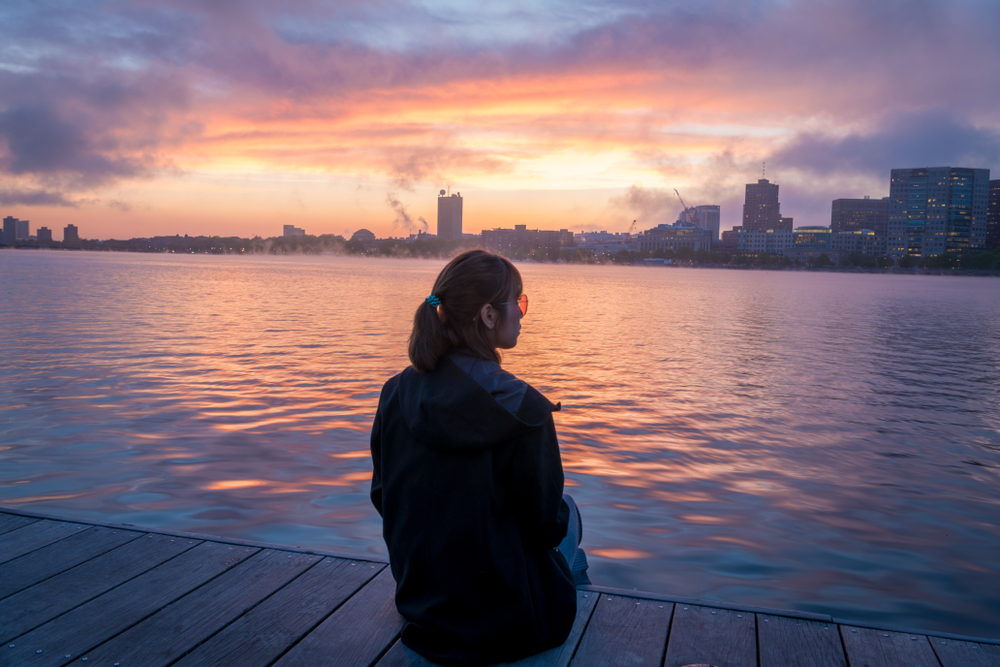
Marijuana is the most frequently used illegal substance in the United States, and its usage is on the rise. At the same time, the perception that marijuana use is harmful is decreasing. Young people today increasingly do not see marijuana use as being risky however, marijuana use has real risks for people, especially youth and young adults, and women who are pregnant or nursing. Because of the potency of today’s marijuana, it is more addictive than ever before.
According to the Substance Abuse and Mental Health Services Administration, approximately 1 in 10 individuals who use marijuana will become addicted to it. If started at a young age, that ratio increases to 1 in 6.
Because the state of Massachusetts has legalized the recreational use of marijuana for individuals 21 and older, the number of people addicted to marijuana has increased and will continue to do so.
The goal of marijuana addiction treatment is to help someone overcome their dependence on the substance. Addiction treatment programs should help the individual heal both mentally and physically from the consequences of addiction as well as help them abstain from marijuana use. Every person has a unique experience with addiction and requires unique treatment. At East Coast Recovery, a comprehensive evaluation is conducted to create a custom treatment program. The following are intensive programs offered at our treatment facility:
Individuals with substance use disorder may benefit from a partial hospitalization program (PHP). In PHP treatment, patients often require higher levels of care than those in standard outpatient treatment. During the day, PHP patients are provided with comprehensive rehabilitation services and medical oversight, but they do not stay overnight. Typically, patients attend a recovery center three to five days a week for four to six hours a day, while living within a sober living environment.
Individuals who attend intensive outpatient programs (IOPs) receive addiction and co-occurring disorder treatment on an outpatient, part-time basis. IOPs frequently require individuals to attend several sessions that last for several hours each week for counseling services, relapse prevention education, and 12-step recovery support groups. Those who suffer from a moderate-to-mild substance use problem that does not require medically supervised detoxification, individuals who have already undergone inpatient rehabilitation and want a step-down level of care, and individuals with daily responsibilities or occupations that they cannot leave are often recommended for intensive outpatient programs.
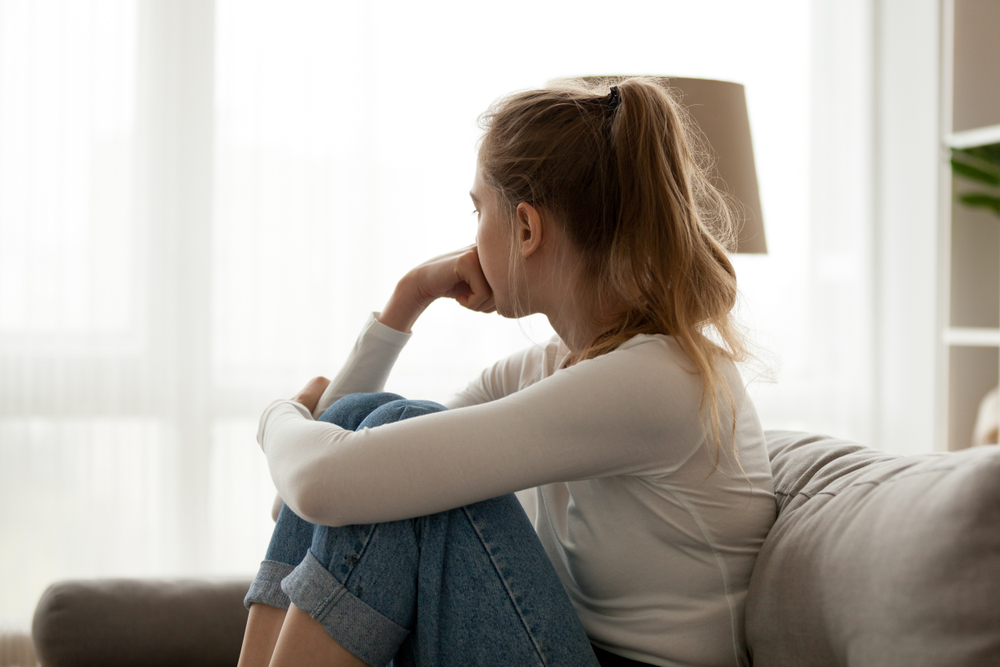
Longer treatment lengths are required to maintain positive outcomes, as research has shown. Drug addiction treatment usually lasts less than 90 days, although adequate treatment length is not predetermined.
In accordance with a person’s unique requirements and circumstances, a treatment program may last for 30, 60, or 90 days or longer. Many people need lifelong care to get better. Relapses do not necessarily signal treatment failure, although they are an essential part of the recovery process. Since addiction affects the brain and frequently causes dependency, people may require more time to help with substance withdrawal, establish new behavioral patterns, and recognize triggers that might lead to substance abuse.
Because they believe that addiction treatment is costly, individuals with substance use disorders often avoid seeking treatment, however, the health and social costs of not seeking care are significant. Seeking treatment now can prevent adverse consequences from occurring. Because of the Affordable Care Act, all insurance plans must at least partially cover mental health care, including substance abuse treatment. Each policy is different and most require patients to pay deductibles or copayments.
Treatment costs may be covered in a variety of ways depending on the facility. Taking out a personal loan or applying for a monthly scholarship may assist individuals in covering some of the costs of treatment. It may seem unappealing to accumulate interest on credit cards and loans, but it is much less costly than not seeking treatment in the long run.
When you’ve made up your mind to undergo marijuana addiction treatment, you might not know where to start. Getting into rehab, on the other hand, is simple. To find out whether you can afford addiction treatment through health insurance, grants, or financial aid, contact addiction clinics. After you’ve met with a substance abuse therapist, determine the most suitable treatment approach.
Before you can enter drug rehab, you must first contact their admissions office and learn about the procedure. Drug rehabs follow strict procedures and protocols to ensure that their facilities match the needs of their clients. Many people do not realize that it is impossible to simply walk into a drug rehab facility and expect to be admitted. After you finish the initial assessment and there are beds available, you’ll be guided through the intake process and begin treatment.
According to the National Institute on Drug Abuse, 9% of marijuana users become dependent or addicted, meaning they cannot abstain from using it even if it has detrimental repercussions on health, finances, relationships, or job performance. Despite the fact that marijuana addiction is not as frequently connected to overdose deaths as other drugs, it may result in serious consequences.
If you or a loved one has lost interest in activities once enjoyed, relationships have begun to suffer, tolerance has increased, or find that you’re unable to quit using, professional addiction treatment is likely necessary.
All aspects of marijuana addiction are treated in a rehab program. Since substance abuse is a physical, mental, and psychological disease, it is treated as such. Therapy sessions conducted while in rehab can assist in exposing any substance use triggers that lead to poor decision-making. Holistic therapies such as yoga, meditation, or adventure therapy involve clients physically which helps them regain confidence and improve overall health. Because no one will ever be suited for one therapy, rehab offers a wide variety.
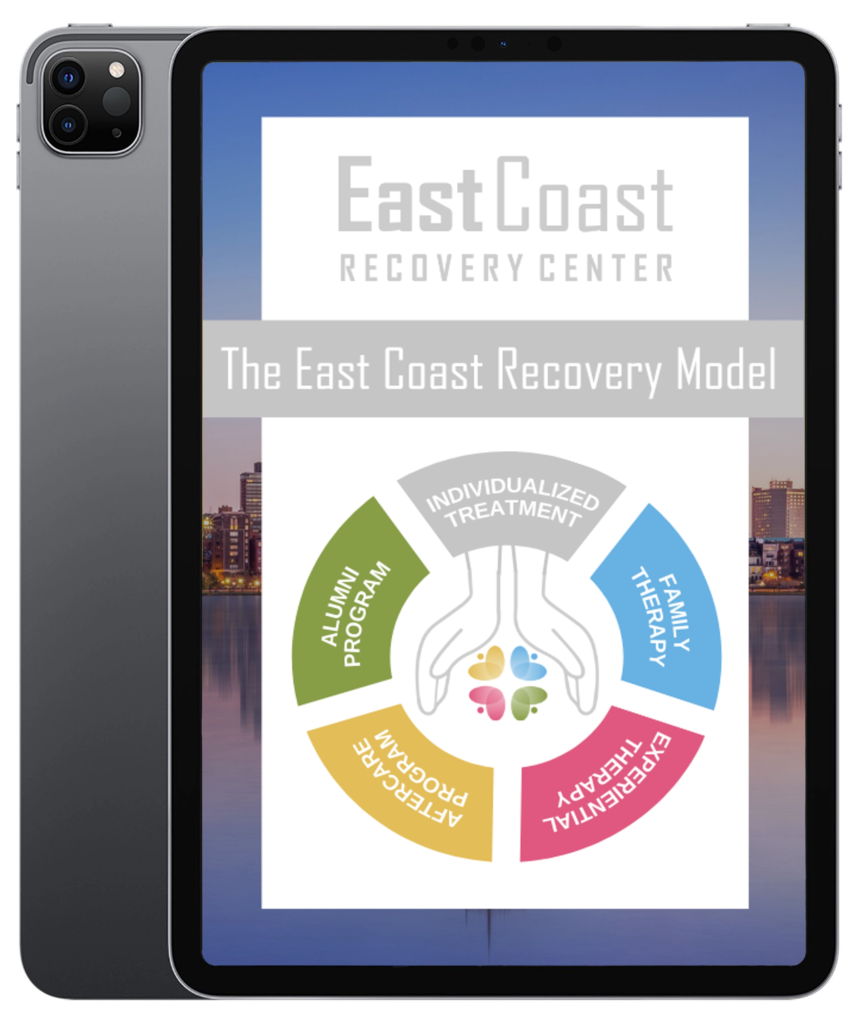
Download Our FREE East Coast Recovery Model eBook
Drug rehab is just one part of the lifelong process of overcoming an addiction. A rehab program is a terrific milestone, but it’s simply the first step. It’s a step in the right direction, a step towards a healthier life, and a necessary step that lays the groundwork for your future. The following are post-rehab programs that will keep you or your loved one firmly planted on the road to recovery after intensive treatment has ended.
Aftercare is a critical part of the treatment and rehab process because it offers ongoing treatment and support to newly rehabilitated clients. These clients work with their primary therapists to develop custom treatment plans and maintain their sobriety. With proper aftercare, relapses may be prevented and minimized. Aftercare is designed to help clients return to their everyday lives without falling back into self-destructive behaviors or habits. Aftercare programs also provide clients with the opportunity to finish work on themselves that may have been neglected in their primary treatment.
Sober houses are just like they sound: a spot to remain where you will have a supportive community and can begin your new life free from marijuana. Residents in sober-living homes agree to abstain from substance use while participating in outpatient treatment or after completing inpatient treatment. After completing rehab, you will develop new habits and routines by living in a sober environment. Having a support network as you practice new skills, gain new insight, and create your new life in recovery with other people in recovery is critical. Relying on a sober living community and network to assist you as you navigate the tough spots and triggers you may encounter.
There are many different forms of sober-living environments. They may be found on the same campus where drug and alcohol addiction treatment is provided or in independent homes, apartments, or condominiums. The number of residents varies based on the size of the home or facility. Some sober-living environments offer individual rooms, although most are shared. Each facility has its own set of rules. There are usually restrictions on shared living areas and individual room maintenance and housekeeping, meal times, curfew times, and 21-step group attendance.

According to most research, THC, also known as, delta-9 tetrahydrocannabinol, is the component most responsible for the active effects of marijuana, and as most of us know already, marijuana is a naturally occurring substance.
The plant form from which marijuana as a drug of use is derived is called Cannabis. There are two types of cannabis: Sativa and Sativa L.
These are different in that Sativa L has not only a different chemical structure, but it also is not mind-altering. This is commonly known as hemp and can be found in clothing, oils, rope, and more. Sometimes it can even be found in beauty products like lotions, shampoo, and facemasks.
Cannabis sativa however, is mind-altering. It is what we know as marijuana. It has many other names like weed, pot, grass, dope, and more. It is often made up of seeds and stems that can range from green to purple.
Marijuana is a drug, and therefore it can become addictive. Cannabis is the most commonly used illicit substance in the US today. Because it has become so common, many people believe it is impossible to become addicted. A common question related to these changes in the brain that can be attributed to substances like weed is: is it addictive?
Yes, marijuana can be considered addictive. The National Institute on Drug Abuse, or NIDA, reports that around 30% of the people who use weed—or cannabis— in excess will become addicted and continue to show some level of misuse. Some of this is related to the ingredients or components of the substance. Some of it is more to do with the “perfect storm” of risk factors that play a role in addiction.
While marijuana is not physically addictive nor does it cause physical dependence, it can cause a mental or emotional dependence to occur. Again, this is due to the active ingredient, THC, which is a type of substance known as a cannabinoid.
Naturally, our body produces various chemicals. Some of these are known as neurotransmitters. You can think of these as the body’s chemical messengers. They are directly responsible for signals moving through the brain and body. In some instances, they are also considered hormones.
These neurotransmitters or messengers are responsible for emotions and reactions. Reactions like jumping into an ice-cold pool on a summer day or a hot tub during an annual snowstorm are driven by these chemical messengers. These neurotransmitters have many roles and functions in our bodies. You can consider them our biological mailing system, like FedEx® for the body.
THC in particular impacts what is called the endocannabinoid system (also known as the EC system) in our bodies. This system is directly responsible for how cells send, receive, and process messages. Imagine them as tiny mail sorters that process each signal as it comes through.
In most cases, cannabinoids like THC impact the system by slowing it down. They slow down communication between the cells. This can lead to all sorts of problems from physical to psychological changes in the body.
When a person consumes marijuana, THC enters the brain by using the bloodstream. This allows it to attach itself to the receptors in our EC system. Remember, the EC system is the mail sorter, and they are tuned specifically to react to incoming messages in a certain way.
So, it shouldn’t be a surprise that when a new or different type of chemical enters and impacts, the EC system can prevent the natural chemicals from doing their jobs properly. This is actually how THC works. It puts a glitch in the system and throws it entirely off balance. Thus, we observe common side effects of marijuana.
Most people use substances like marijuana because the high feels good and allows them to cope with some other outside stressor. When using the drug, people will often experience a unique type of high. This is not to say it isn’t without side effects. It can commonly be seen with symptoms like:
Increased senses
A different sense of time
Feeling humorous
Relaxation
Mood changes
Decreased body movement
Impaired thinking and memory
Red or bloodshot eyes
Rapid heartbeat
Constant hunger
Dry mouth
Slow reaction time or poor coordination
Constant cough
Decreased activity
Poor performance at school or work
Withdrawing from friends or family
Less interest in activities
Paranoia
Anxiety
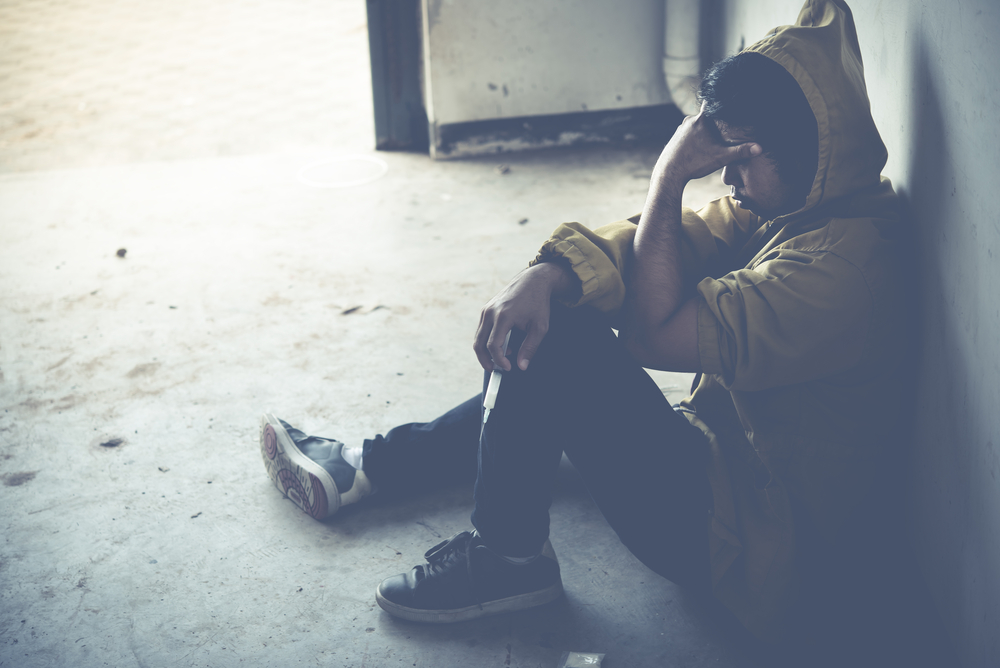
Addiction is unique and complex. Substances that can lead to addiction often do so because they can change or alter the usual mechanics of the brain. Like we saw before, our body operates on a special chemical messaging system and if something gets stuck in the gears it can have some serious side effects. Substances of use do just that since they specifically change the way the chemical cycles in the brain work. THC and the other components found in marijuana are substances that directly affect the brain and its chemistry.
Due to this, there can be some clear signs and symptoms when someone is misusing or potentially becoming addicted to a substance. Marijuana is not unique in this, but it does have some unique characteristics. Some signs are physical and others are behavioral. Marijuana misuse can be usually seen by looking out for the following symptoms:
Increased tolerance
Using more than intended
Increased time spent getting high
Reduced activities
Intense cravings
Using to escape problems
Depend on it for relaxation or creativity
Basing choices on the ability to use
Continued use despite negative consequences
Withdrawal symptoms
Unable to stop
Again, marijuana is the only substance to do this. Other drugs like opioids, alcohol, meth, and more are capable of causing some of these side effects and signs of addiction. One feature that a lot of people know about substances, and that most people are concerned about when it comes to substance misuse, is that overdose is possible. Many people used to believe that you could not overdose on marijuana.
In other instances, it is possible to overindulge in cannabis or marijuana. If you happen to ingest too much, it is possible to experience hallucinations, delusions, or psychosis. It is rare to see this associated with weed in modern media, but it can happen. It is more common for other drugs to be associated with these types of issues.
Panic attacks or severe anxiety
Psychotic reactions in which the person loses touch with reality
Hallucinations, delusions, or loss of personal identity
Extreme paranoia
Elevated heart rate, chest pain, elevated blood pressure, or palpitations
Uncontrollable shaking or even seizures
Pale or flushed skin color
Unresponsiveness
Headache
These signs or symptoms of a marijuana overdose can last longer depending on how it was ingested. As we said before, the ability of the substance, THC, to get into the bloodstream controls how fast the effects are experienced. It turns out that the way it is taken also determines how long the intoxication from marijuana lasts. Typically, when it is smoked, intoxication lasts for 1 to 3 hours. When ingested via edibles or drinks, the effects can last hours longer than the standard 1- to 3-hour time window.
First, let’s remember that like all substances, the way you take marijuana impacts how much gets to your bloodstream and brain. It can also change the high that you experience and how much you ingest before even realizing it.
When smoked or vaped, marijuana enters the bloodstream by way of the lungs. Since the lungs are easily used for moving substances to the bloodstream, it can lead to seriously rapid transmission of THC to the brain. This means that smoking or vaping marijuana can lead to some quick, and even near-immediate, effects. Also, this is one of the most common ways that marijuana is used both onscreen and off.
Smoking is not the only way to ingest it, however. There are many ways it can be made, such as
Eating “edibles,” like brownies, gummies, cookies, or candy
Eating or smoking marijuana extracts, or potent THC resins (hash oil, honey, oil, wax, or shatter)
Orally ingesting cannabis capsules
Smoking the dried flower in pipes, bongs, blunts, or rolling papers.
Sublingual (under the tongue) THC tinctures, or adding it to food or drink
The effects that marijuana has come from how it is used. We know smoking produces effects faster, but what if it was to be eaten?
When eaten, THC will make its way to the bloodstream through the stomach and intestinal lining. Think about films that show pot brownies and how the characters often are seen filling up on the brownies without ever knowing how much they are impacting them. Or, think of the story of someone accidentally having an edible without even knowing it at the time.
In these instances, the effects of THC are slower to come on but are just as strong if not stronger than other methods of consumption.
The rate at which the effects of marijuana can be experienced when ingesting it orally, or eating it, can often be unpredictable. This can make it easier to end up overusing which can lead to some nasty side effects.
It is important to keep in mind that the overdose feelings of marijuana are temporary. That can be hard to remember at the moment, especially if you or a loved one have some scary side effects.
Again, we know that the over-consumption of marijuana alone has not had fatal consequences. Overuse of marijuana may lead to unpleasant side effects but there are some ways you can try to combat it if you or a loved one has accidentally had too much.
Remaining calm is key. Find a relaxing, quiet place to wait out the effects of marijuana. Distract yourself by putting on a favorite movie, television show, or album. Taking a shower can be a relaxing experience that may help you ride out any negative feelings.
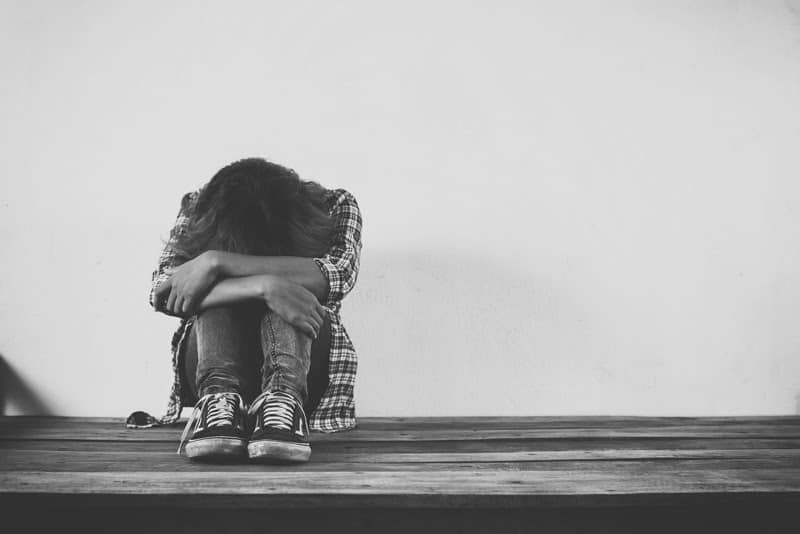
If you or a loved one is suffering from the devastating effects of marijuana chemical dependency, don’t wait any longer. Seeking care is the best way to overcome marijuana addiction. Marijuana dependence can be hard to handle alone, so finding a program of care that is suitable for you is the most important thing you can do when overcoming addiction.
If you or a loved one have made the decision to research marijuana rehab centers, you will want to make sure you find the best treatment available. It is imperative that the program you choose offers everything you will need for a successful recovery.
When addicts seek support from other people who are also recovering from marijuana addiction, they are much more capable of remaining on the path to recovery. Here is a list of Boston, Massachusetts support groups:
10:00 AM
Morning Break
155 Humboldt Ave, Dorchester, MA,
12:00 PM
Noontime Everyday (Online only)
Online only
7:00 PM
Narcotics Anonymous
First Congregational Church
300 Central St. Saugus, MA
10:00 AM
Morning Break
155 Humboldt Ave, Dorchester, MA
12:00 PM
Noontime Everyday (Online only)
Online only
7:30 PM
Clean & Proud
Fenway Neighborhood / K-Street Facility
69A Kilmarnock Street, Boston, MA
10:00 AM
Staying Clean In the Quarantine (Online only)
Online only
Boston, MA
6:30 PM
We Never Have To Use Again
6 Southbourne Rec Room
6 Southbourne Rd. Jamaica Plain, MA
7:00 PM
Our Primary Purpose (Online only)
Online
Boston, MA
10:00 AM
Morning Break
155 Humboldt Ave, Dorchester, MA
12:00 PM
Narcotics Anonymous
Finland Building
774 Albany Street Boston, Recovery Mile, MA
7:00 PM
Text Message
4th Presbyterian Church
340 Dorchester Street, South Boston, MA
10:00 AM
Morning Break
155 Humboldt Ave, Dorchester, MA
6:00 PM
Paycheck
Marcus Garvey Center
116 Roxbury Street, Roxbury, MA
7:00 PM
Never Alone
YWCA
7 Temple Street, Cambridge, MA
9:00 AM
Club 24
787 Salem Street Malden, MA
7:00 PM
How It Works
Fourth Presbyterian Church
340 Dorchester Street, Boston, MA
10:00 AM
Morning Break
155 Humboldt Ave, Dorchester, MA
6:30 PM
End Of The Line
Forest Hills Covenant Church
50 Morton Street, Jamaica Plain, MA
7:00 PM
Serenity By The Sea
Saint John's Parish Hall
222 Bowdoin Street, Winthrop, MA
At East Coast Recovery Center, our mission is to help those suffering from drug and alcohol addiction achieve success in recovery and life. Our campus is located 20 minutes outside of Boston in beautiful Cohasset, Massachusetts. This is where your healing journey will begin. Take the first step by calling (617) 390-8349 today.
We realize that every person’s path is different, so our approach to treatment for substance use issues must be different as well.









